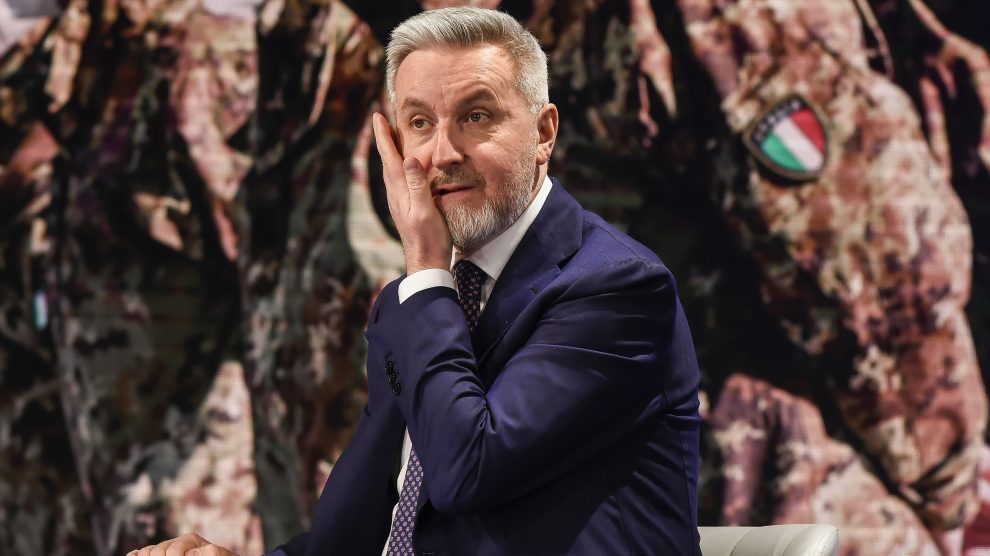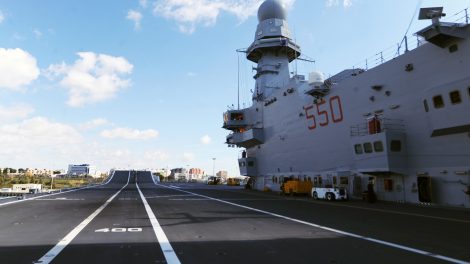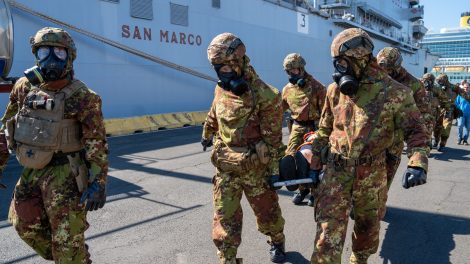On Wednesday, the Italian Parliament took the “historic” decision to raise defence spending to 2% of GPD, aligning with the desired NATO threshold. Thursday, when announcing that NATO’s Eastern flank would be reinforced, Secretary General Jens Stoltenberg praised Italy’s commitment to the Alliance.
As elsewhere in Europe, Russia’s invasion of Ukraine proved enough for MPs across the political spectrum to do away with their long-standing aversion to the subject. Italy’s move follows those of Germany, Denmark and Sweden.
Defence Minister Lorenzo Guerini, who had been working towards this goal since he took office in 2019, hailed the result as a success. “I want to be clear: modern and efficient armed forces are first and foremost a guarantee for citizens, for their security and for Italy’s role in the world,” he told il Corriere della Sera.
The Italian Armed Forces, he continued, are “called upon to fulfil decisive missions: the defence of the State and its vital interests, the defence of the Euro-Atlantic and Euro-Mediterranean areas, and international missions.” Thus, the country must enable them to carry out such duties “in the best possible way, with full operability and maximum security.”
Italy’s military personnel are actively contributing to reinforcing NATO’s eastern border, explained the minister. They are scattered across Latvia – with 250 units –, Romania – surveilling the skies with 8 Eurofighters – and vessels in the eastern Mediterranean.
Also, the Army has stated that all training will be undertaken in combat-ready mode, a scale-up that heightens its readiness to exogenous threats.
“We are ready to strengthen security measures for the most exposed countries on the south-eastern flank. That is why I have stepped up talks with Hungary, where we will be taking part in joint exercises,” added Mr Guerini, stressing that such initiatives must be taken to strengthen deterrence as a result of Vladimir Putin’s choices.
Later in the interview, the head of Italy’s Defence stood by SG Stoltenberg’s rejection of imposing a no-fly zone over Ukraine, as the measure would entail direct confrontation with the Russian air forces. The solution, he said, is along the road that Western allies are already walking: heavy sanctions on Russia and material support to Ukraine, including weapons, to force the Russian president into a negotiation.
As for the state of NATO, which – as French President Emmanuel Macron noted – has been revitalised by the ongoing war in Europe, Mr Guerini noted that a revision of its Strategic Concept was already well underway. The Russian aggression, he said, has renewed this process by focusing attention on NATO’s primary mission: collective defence.
“Furthermore, Italy is also working on three pillars that contribute to the primary mission: deterrence and defence, prevention and crisis management, and cooperative security. Here, too, [Mr] Putin has made a wrong prediction: he was counting on a NATO bent by the dramatic conclusion of the Afghan mission, but instead he found a NATO that was more determined and united than ever.”




